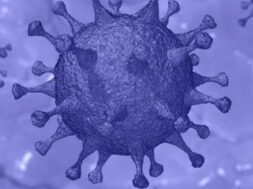
Covid-19: New Omicron Spawn subvariant may return this winter, warn experts
Virendra Pandit
New Delhi: Ten days after top US immunologist Dr. Anthony Fauci warned the Americans—”Don’t be surprised if a new, more dangerous Covid variant emerges this upcoming winter,”—experts have warned of the possibility of a fresh wave of the pandemic infections in India from next week.
As enthusiastic Indians gear up to celebrate their biggest festival of Diwali next week and crowd the places, experts warned the new Omicron Spawn sub-variants, spreading fast in parts of the world, have also reached India. These sub-variants, BA.5.1.7 and BF.7, viewed as highly infectious with greater transmissibility, emerged from Inner Mongolia in China and drove a fresh wave of Covid infections in different countries.
The Gujarat Biotechnology Research Center recently detected the first case of BF.7 in India.
“BF.7 has been found in India, but there is no reason to panic because it is from Omicron’s family,” Dr. Madhavi Joshi, senior scientist at the Centre, was quoted as saying. Unlike other countries, the Omicron variant did not have a devastating impact in India, she said, adding, the people should, however, go back to wearing masks, avoiding gatherings, and following hand hygiene.
China imposed fresh lockdowns and travel restrictions across the country after its National Health Commission on October 12 reported 1,760 new local infections for the previous day.
The BF.7, also known as BA.2.75.2, was first detected in Northwest China’s Inner Mongolia Autonomous Region on October 4 and has since swept to more provinces in less than a week, Global Times reported.
A sub-lineage of the Omicron variant BA.5.2.1, the BF.7 has also spread to Belgium, Germany, France, Denmark, and England.
Being a sub-variant of Omicron BA.5, BF.7 reportedly has enhanced immunity evasion, unlike its parental strain. Those infected before or who took the Covid-19 vaccines can also get infected with BF.7.
Earlier, the World Health Organization (WHO) warned against the BF.7 Omicron variant, saying it could become the new dominant variant.
The symptoms associated with the BF.7 sub-variant are like other sub-variants of Omicron, including headache, persistent cough, changes in sense of smell, chest pain, hearing loss, and shaking. The other Covid symptoms, like abdominal pain, diarrhea, runny nose, sore throat, and fatigue, may also reappear.
As on October 15, the active cases in India stood at 26,618. The total number of Covid-19 cases rose to 4,46,26,427 after 2,430 new coronavirus infections were reported in the previous 24 hours. The total number of pandemic-related deaths in India stood at 5,28,874, the Union health ministry data showed on Saturday last weekend.
With the emergence of these new Omicron sub-variants, which can surpass immunity from previous infections and vaccines, experts have cautioned utmost care, especially to protect vulnerable groups like children, the elderly, cancer survivors, cancer patients, and organ transplant patients.
The prevalence of this variant has doubled in the United States (from 0.8 to 1.7 percent) in the past two weeks. Nearly 15 to 25 percent of these variant cases have come from European countries like the UK, Germany, and France,” Dr. Charu Dutt Arora, Consultant Physician, and Infectious Disease Specialist, Head of Ameri Health, Asian Hospital, Faridabad, said.
Any mutation of a virus carries an advantage over the previous wild type. This variant of Omicron BF.7 is more immunologically evasive and can counter the antibodies present in people because of previous infections or vaccinations, he added.
According to Dr. Pavithra Venkatagopalan, Corona virologist and Covid Awareness Specialist, Rotary Club of Madras, transmissibility has increased with the new variants as they can evade the immunity based on previous infections even in fully vaccinated individuals and also they seem to can bind better. It means a few viral particles cause can cause fresh infection. With earlier variants, we needed a lot more exposure to be infected, but not with this one, he added.
“There are chances of another wave of Covid-19 because of this variant in India. During the festive season, people would gather in large numbers with no travel restrictions, giving the variant a chance to spread through the Indian population in the next 3-4 weeks. Since the flu season and incoming winters are also approaching, the cases of congestion, sore throat, and runny nose are expected to rise,” Dr. Arora said.













